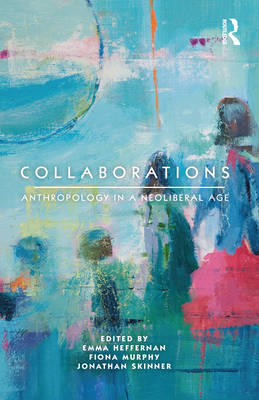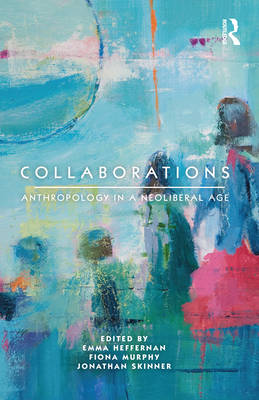
- Retrait gratuit dans votre magasin Club
- 7.000.000 titres dans notre catalogue
- Payer en toute sécurité
- Toujours un magasin près de chez vous
- Retrait gratuit dans votre magasin Club
- 7.000.0000 titres dans notre catalogue
- Payer en toute sécurité
- Toujours un magasin près de chez vous
Description
Collaborations responds to the growing pressure on the humanities and social sciences to justify their impact and utility after cuts in public spending, and the introduction of neoliberal values into academia. Arguing 'in defense of' anthropology, the editors demonstrate the continued importance of the discipline and reveal how it contributes towards solving major problems in contemporary society. They also illustrate how anthropology can not only survive but thrive under these conditions. Moreover, Collaborations shows that collaboration with other disciplines is the key to anthropology's long-term sustainability and survival, and explores the challenges that interdisciplinary work presents.
The book is divided into two parts: Anthropology and Academia, and Anthropology in Practice. The first part features examples from anthropologists working in academic settings which range from the life, behavioural and social sciences to the humanities, arts and business. The second part highlights detailed ethnographic contributions on topics such as peace negotiations, asylum seekers, prostitution and autism. Collaborations is an important read for students, scholars and professional and applied anthropologists as it explores how anthropology can remain relevant in the contemporary world and how to prevent it from becoming an increasingly isolated and marginalized discipline.
Spécifications
Parties prenantes
- Editeur:
Contenu
- Nombre de pages :
- 280
- Langue:
- Anglais
- Collection :
Caractéristiques
- EAN:
- 9781350002265
- Date de parution :
- 27-07-20
- Format:
- Livre relié
- Format numérique:
- Genaaid
- Dimensions :
- 156 mm x 233 mm
- Poids :
- 452 g

Les avis
Nous publions uniquement les avis qui respectent les conditions requises. Consultez nos conditions pour les avis.





